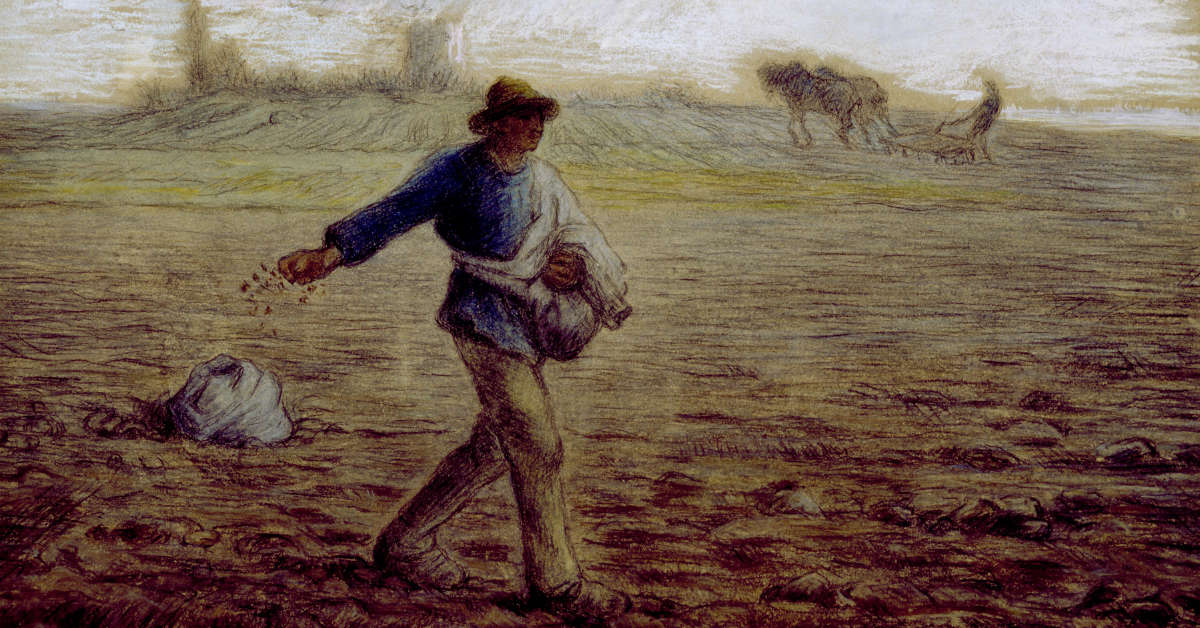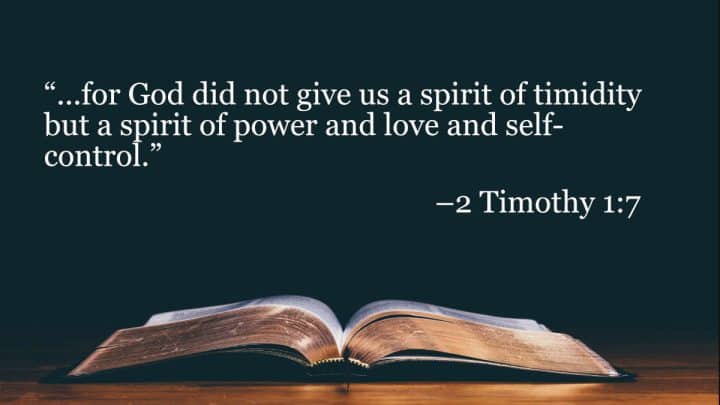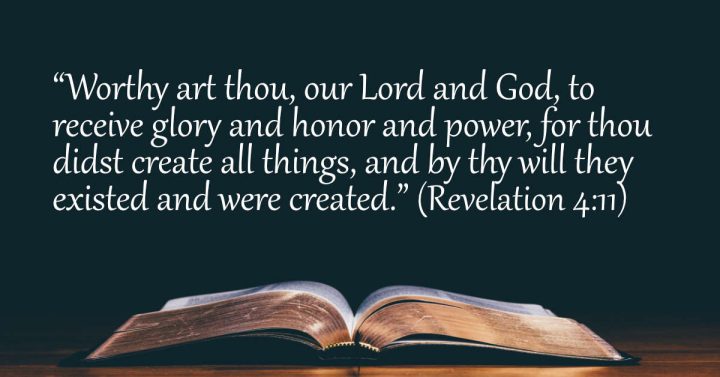
This Sunday we hear a parable from the 13th chapter of Matthew’s Gospel, which marks a turn in Jesus’ ministry. Because of opposition from the scribes and Pharisees, Jesus is beginning to use parables more frequently.
We see at the beginning of this chapter that rather than speaking in a synagogue, he preached from a boat to the crowds on the seashore. This is not a hyperbole – even today, you can test this natural phenomenon out on the northern shore of the Sea of Galilee. There is a cove surrounded by a hill, which creates a kind of natural amphitheater. It is possible for crowds on the hillside around the bay to hear what is spoken on the water.
The Sower
It is possible that a sower was even visible to these crowds as Jesus began to speak the parable. Regardless, it is a common image that his listeners would have understood well. To understand the image, we need to understand something about Galilean farming practices. Otherwise, we risk seeing this sower as carelessly spreading his seed in strange places.
In Galilee, the seeds were spread by hand, then later plowed into the soil. Some of your field had probably been walked on and become a path for villagers, and some of it was only a few inches of topsoil on top of the limestone natural to that area. But you would spread seed on every available space, then later plow the land. Some seed would take, others wouldn’t.
This is one of the few parables where we actually have Jesus’ explanation of the elements of the story. Remember, it’s after hearing this parable that the disciples ask him why he’s teaching this way. After answering that question, he goes ahead and explains what this parable of the Sower means. (In fact, if we’re familiar with this story, it may be difficult for us to initially read the parable without hearing his explanation in our mind as we read!)
I think it can be easy to think of the soil as four different types of people. In fact, it might even be tempting to think of particular people we know when we hear this parable!
“Oh, rocky ground, like when so-and-so had that big splash of a conversion and we had such high hopes, but they didn’t really know what they were getting into and and then they just fell away from the Faith when it got hard…” Or “oh, thorny ground is like so-and-so, who had a hard time with such-and-such teaching of the Church and got married outside the Church and now doesn’t even go to Mass on Sunday…”
It can be tempting, can’t it? To think of how the parables relate to everyone around us, rather than us?
My Own Heart
So I’d like to challenge you to read this parable with only yourself in mind. And while we may tend to think of the soil as four different types of people, perhaps we need to instead see that the four different types of soil are within us.
The Path: When I have allowed the Devil to snatch the Word from my heart? What can I do to seek to better understand the Word so that it isn’t so easily snatched?
The Rocky Ground: Have I allowed suffering to scorch the Word? Has my faith relied too much on feelings in the spiritual life, so that when dryness, suffering, or darkness comes, it’s hard to remain faithful?
The Thorns: When have I been tempted away from the Faith because of love of comfort, fear, or desire for the things of the world?
The Good Soil: When have I allowed the Word to rest and take root? Have I remembered to pray to the Lord for the courage, perseverance, understanding, and other gifts necessary to be the good soil? Because all this is the Lord’s work, after all. We’re not pulling ourselves up to heaven by our own bootstraps.
Lord, Transform me!
We need to pray, to beg, and then to be open to God’s work. Because God can make thorns, soil, and a path into rich soil.
St John Chrysostom preached, “Rock cannot become earth, nor a way cease to be a way, nor can thorns cease to be thorns. But in the things of the mind it is far otherwise. For the rock can be changed, and become rich and fruitful soil… Thorns can be uprooted, and the young plants, being freed of them, allowed to come to maturity. For unless this could be, He would not have sown.”



